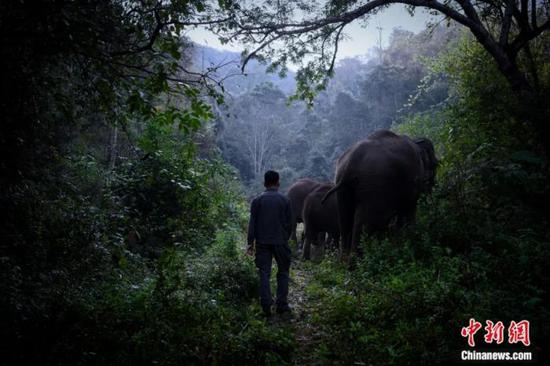
File photo of a staff member of the Asian Elephant Salvation Center train Asian elephants in jungle to regain their wildness in Xishuangbanna, Yunnan Province. (Photo: China News Service/ Kang Ping)
CNS: How should we understand the relationship between man and heaven and earth better?
Lou Yulie: Chinese culture has made a very important conclusion about the relationship between man and heaven and earth, that is, man is the heart and mind of heaven and earth. This sentence comes from the Book of Rites, which is about the position of man between heaven and earth. Heaven has its time to produce all things, earth has its resources to support all things, and men have their own method in governing all things between heaven and earth. Men’s words and deeds are related to their hearts. We do and say what we think. Men’s thoughts and actions also affect heaven. As the heart and mind of heaven and earth, men should be righteous so that they can live in harmony with nature. Evil thought will cause contradictions and conflicts between heaven and earth and man.
Chinese people developed such an idea that human beings are an integral part of nature in ancient times. This is great and has profound influence. It established human beings’ understanding of themselves from the very basis. Therefore, I say that Chinese culture is people-oriented. To know the objective world of all things, we must first know men. Only after we have mastered the characteristic that men live in the universe can we deal with the relationship between man and all things well.
Man has the initiative to handle this relationship well. Human beings are self-conscious and self-disciplined, while other lives are passive and spontaneous and they cannot change the universe. On the whole, human beings cannot change the laws of nature either, and the weather wouldn’t change for human preferences. But the impact of human behavior on nature far exceeds the life of nature. Therefore, the idea that human beings are an integral part of nature is a very important view of nature and life developed by Chinese people.
Moreover, the idea that human beings are an integral part of nature also involves ethics. The Chinese believe that the moral principle of being a man is learned from the universe, and men turn the spontaneous behavior of all things in the universe into the conscious behavior of human beings, which is a sign that human beings break away from the barbarism of animals and create civilization. The core of the word “civilization” is the self-consciousness and self-discipline of man.
CNS: Chinese civilization has been challenged by extreme climate for many times. Has the Chinese culture or its view of nature ever been adjusted in history?
Lou Yulie: I don’t think there was any major adjustment. It has been consistent. We must master one of the core concepts in Chinese culture—zhong (中), or “neutrality” literally. It has many meanings. Here I mainly talk about it from two aspects. One is balance. Chinese culture believes that “neutrality” is the foundation of all things in the universe. There are times of imbalance and asymmetry among things in the universe, but they will end up with “neutrality”. You cannot let your desire go too far. This is one of the meanings of being “neutral”.
Another meaning is “inner”, which is opposite to “outer”. For example, in response to COVID-19, Chinese people depend on inner strength and resources and resist the virus from the perspective of man’s self-improvement and protection. This is a very important concept as it holds that the most fundamental point for a man is self-improvement. Of course, there is no denying that we can also take external auxiliary means to resist it. This is also a people-oriented perspective.
CNS: So, what do you think are the characteristics of China’s view of nature today?
Lou Yulie: I think our present view of nature is more influenced by western culture. We view problems with the western scientific thinking and separated method and fail to see the differences between the whole and the parts. The whole and the parts are correlative and inseparable. This point is usually neglected. But it is very important.
With such thinking influenced by western culture, people focus too much on the fine division of problem parts. In fact, viewing problems from the whole is more important, and only in this way can we solve the problems. This is also a very important concept in Chinese culture.
CNS: As China is influenced by western culture too much today, what adjustments do you think should be made in the future?
Lou Yulie: I think we should highlight the view of nature in Chinese culture. We should notice that its holistic view and people-oriented view are very important. I think the relationship between people and society, as well as the body-mind relationship of people themselves will be greatly improved. We should not focus only on the conflicts between things. There is mutual assistance too. As is often said in Chinese culture, there is mutual growth and mutual restraint between them. Chinese culture holds that all things interact in a generative or destructive relationship.








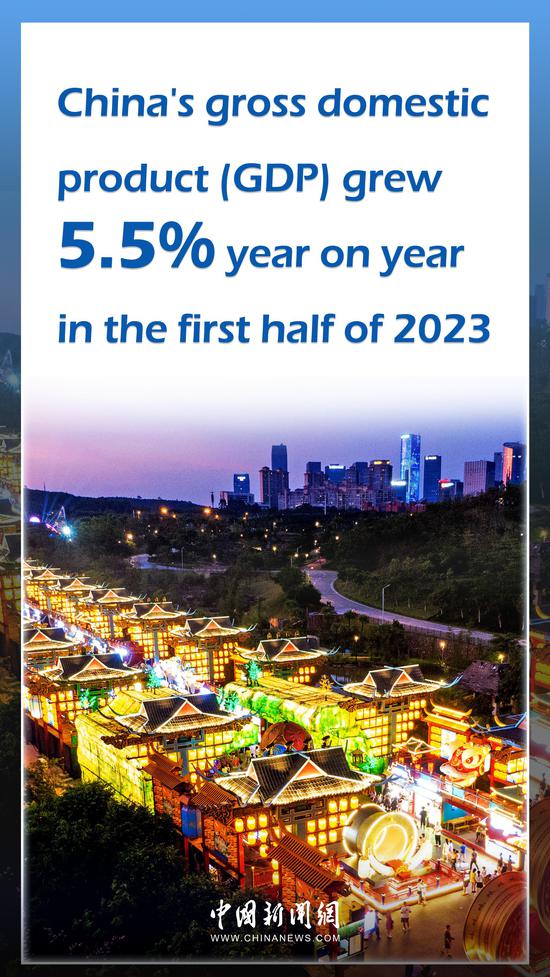








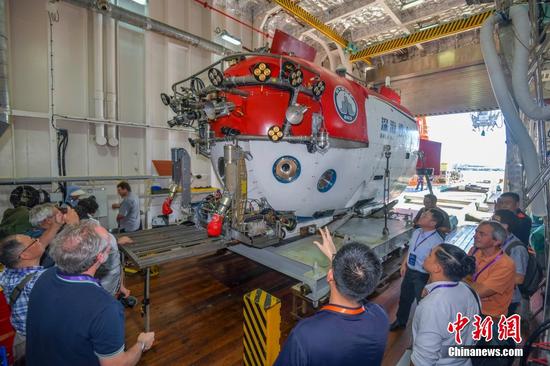

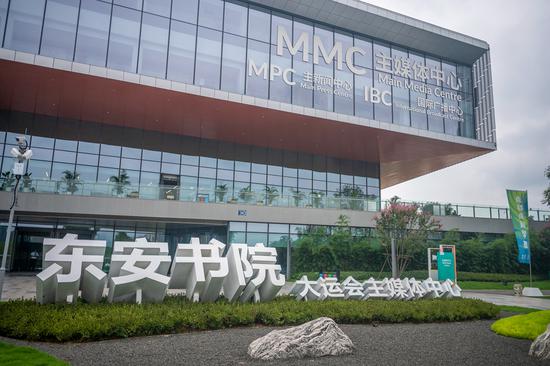

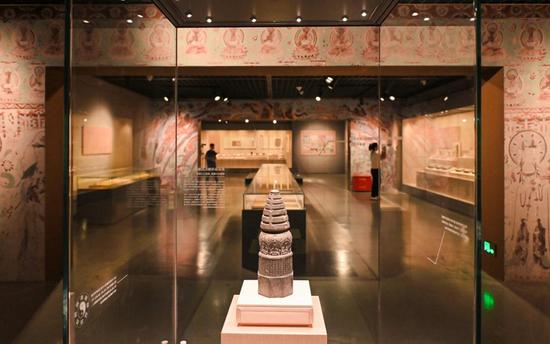

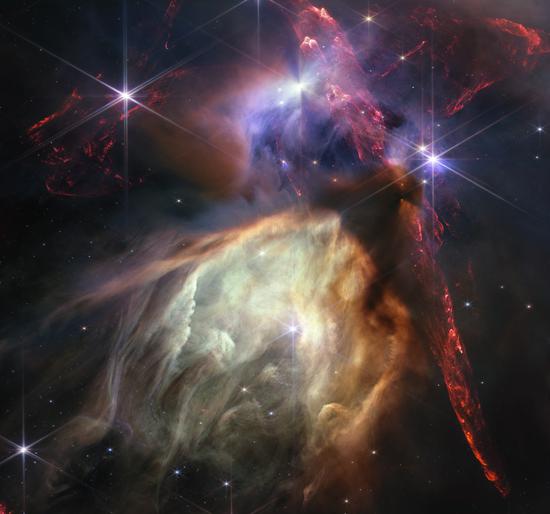
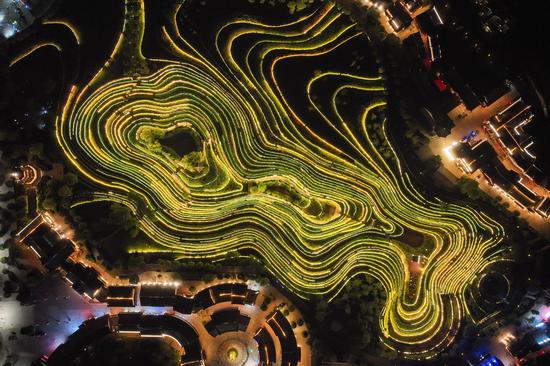

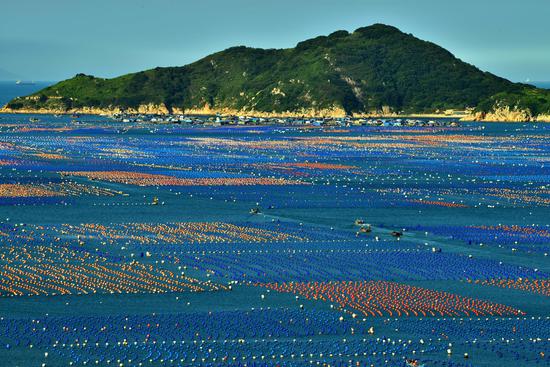
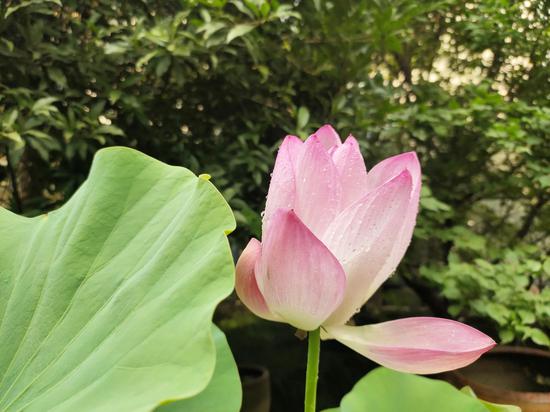
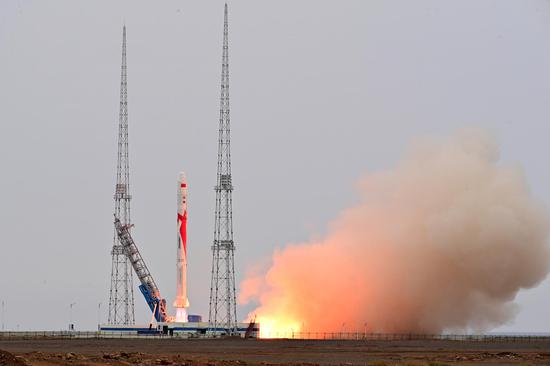


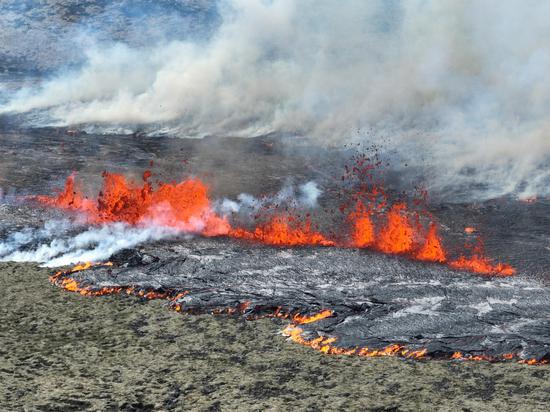
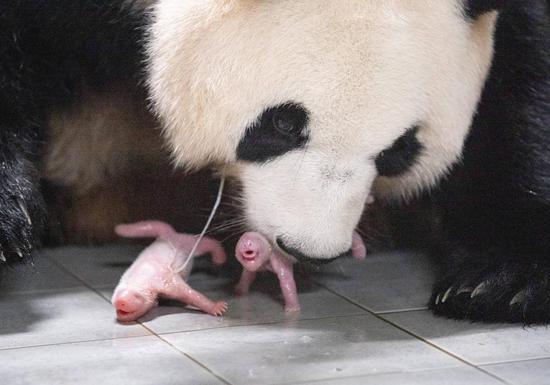
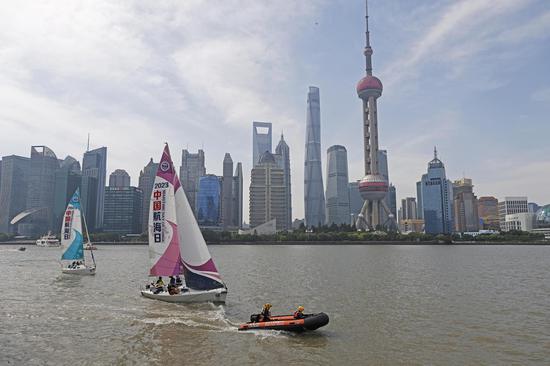
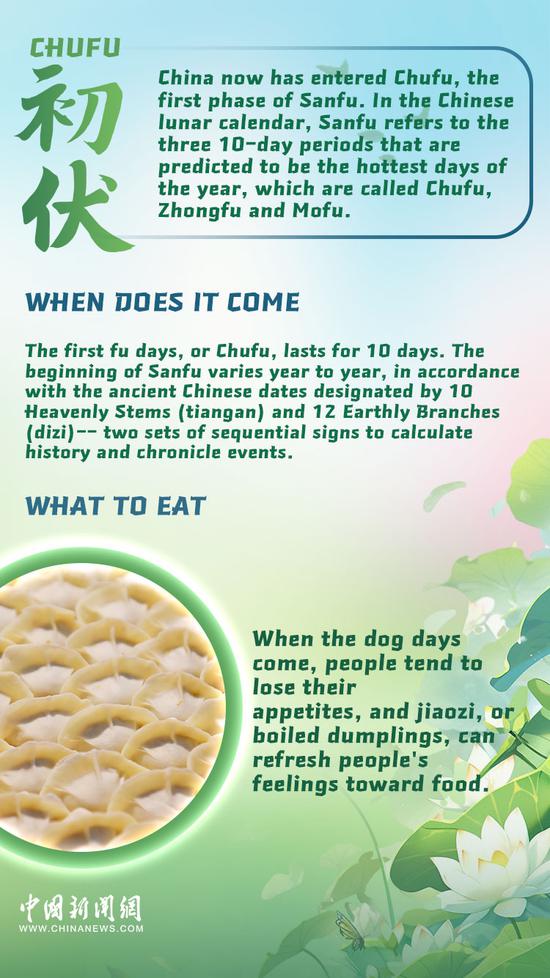
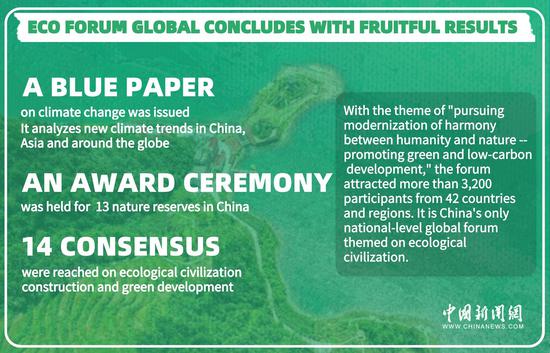
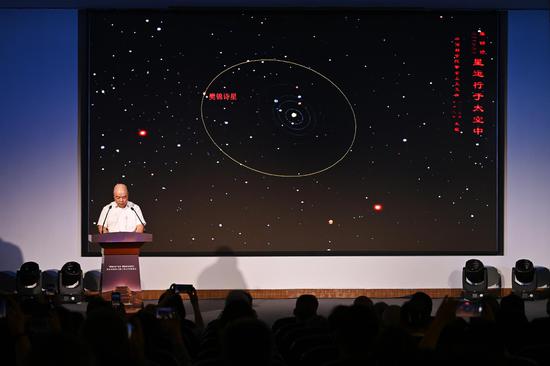
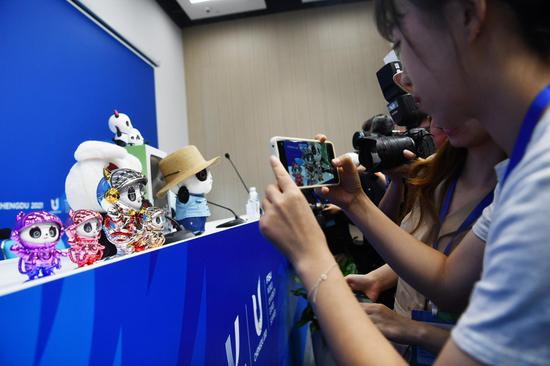


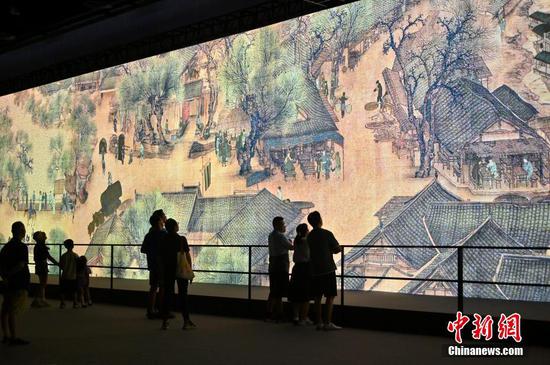
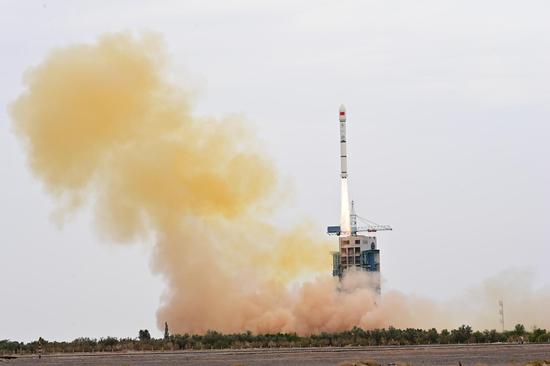
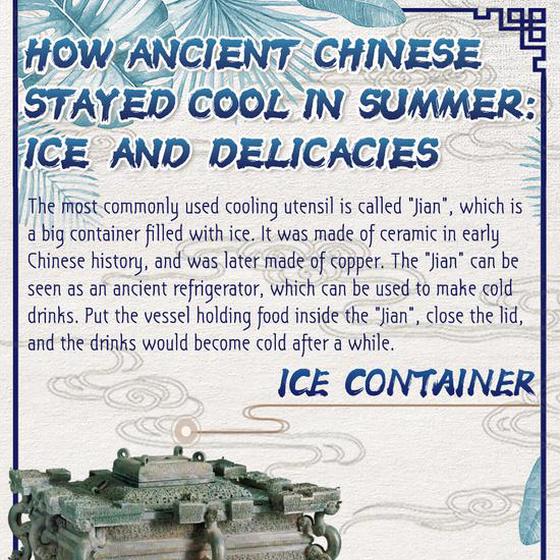
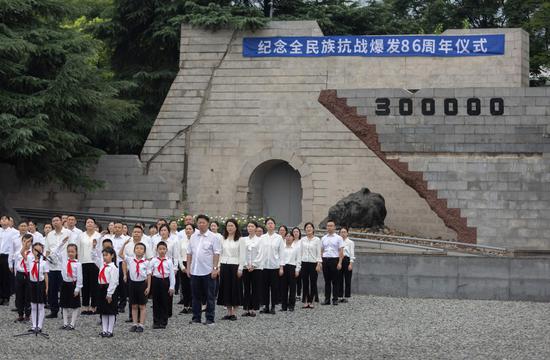
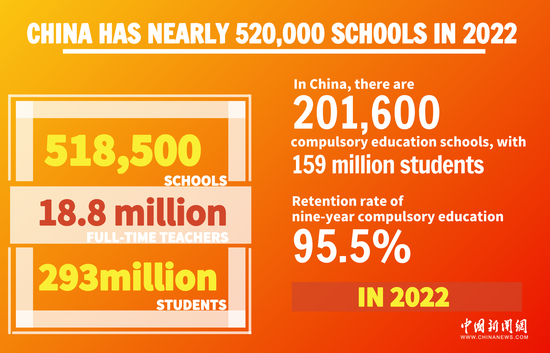





 京公网安备 11010202009201号
京公网安备 11010202009201号